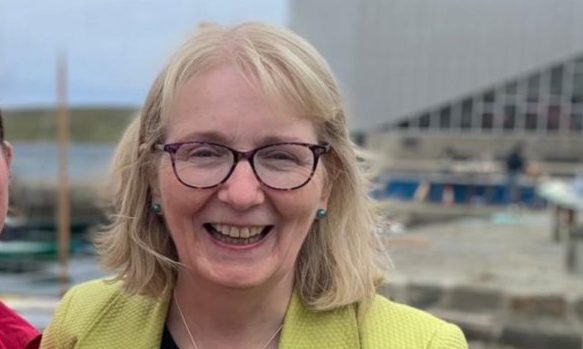Shetland election candidate Beatrice Wishart has called for political leaders to adopt the ingenuity of islanders to help tackle issues with access to high speed internet in rural communities.
Polling by Survation for DC Thomson found broadband connectivity is a key issue for many rural areas ahead of May’s Scottish Parliament election, particularly with more people now working from home and relying on faster download speeds.
The northern part of the Scottish Government’s R100 superfast broadband rollout will not be finished until 2026, four years later than originally planned, and trade chiefs have warned connectivity is “absolutely fundamental” to many rural businesses.
Speaking on our new election newscast, streamed live online every afternoon during the campaign, Scottish Liberal Democrat parliamentary candidate Beatrice Wishart spoke of some of the challenges people in her constituency face.
Ms Wishart said people living in Shetland have found ways to overcome issues with slow internet speeds or poor access and challenged politicians at Holyrood to adopt the same creativity.
“It’s about being creative, particularly in island areas where you’ve got some distance from mainland Shetland to use the usual methods of connecting,” she said.
“If I can give you one instance of one island during the earlier lockdown of a teenager who couldn’t access his online lessons because the home internet would not support Glow or Microsoft Teams.
“And the way they got round that was it just so happened that his father’s fishing boat was in at the pier, so he was able to go down to his dad’s fishing boat, where there was a good connection, and he was able to do his lessons from there.
“So these are the kind of creative things that islanders do naturally, so we would like to see a bit more creativity from those who are putting in the infrastructure.”
As part of our election manifesto coverage, Stewart Nicol, chief executive of Inverness Chamber of Commerce, described transport and digital connectivity as “pressing issues” for communities and business across the Highlands.
He said: “Digital connectivity is an absolute essential and I think the last year of businesses having to manage the impacts of the Covid restrictions have illustrated that as we all work from home or try to move our business model online.
“Tourism is one of our region’s biggest sectors and that’s a global marketplace so digital connectivity, online presence and being able to trade globally is absolutely fundamental to business and we just don’t have an adequate broadband infrastructure in place.”
